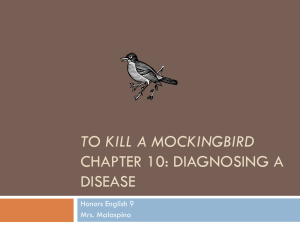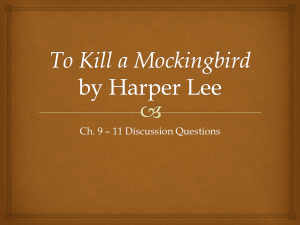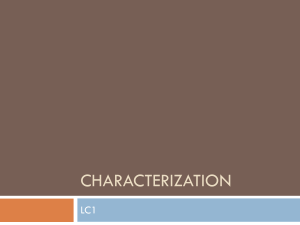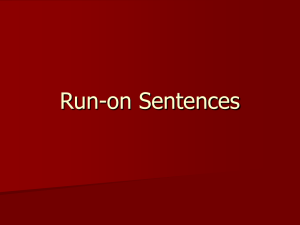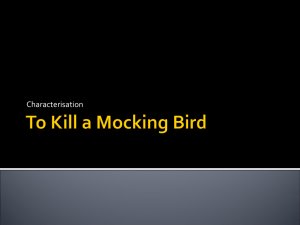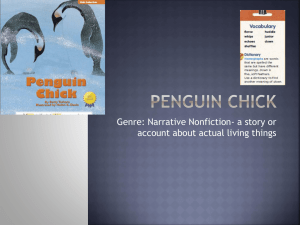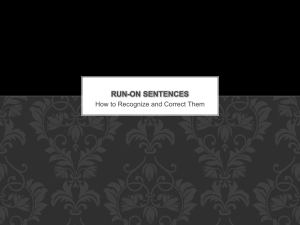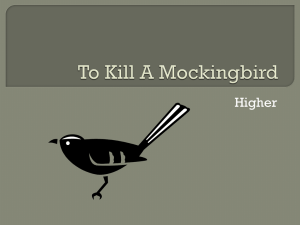Day 10 Chapters 8,9 run
advertisement
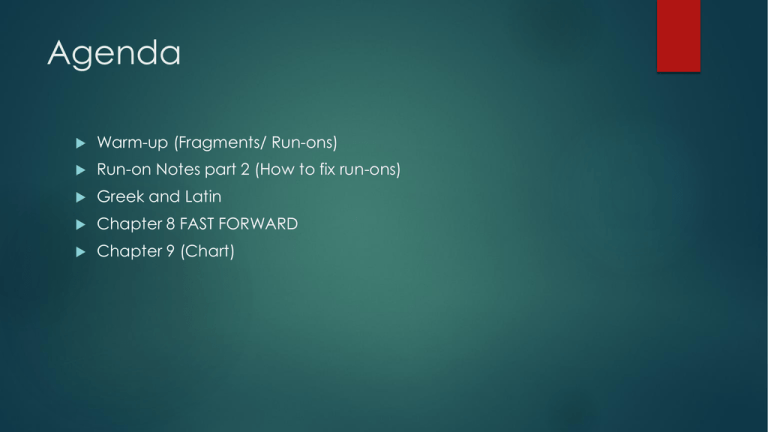
Agenda Warm-up (Fragments/ Run-ons) Run-on Notes part 2 (How to fix run-ons) Greek and Latin Chapter 8 FAST FORWARD Chapter 9 (Chart) Rewrite this paragraph, correcting each fragment and run-on. You may add words to any fragment to make it a sentence, or combine it with another sentence. To correct a run-on, you may either separate the sentences or join them correctly Although penguins look clumsy on land. They are graceful in the water. Their bodies are perfectly suited for swimming and diving. They a streamlined torpedo shape. Their wings are shaped like flippers penguins use them to propel themselves through the water at speeds up to 30 miles per hour. Use their webbed feet to steer. Most penguins can even swim like porpoises. Rewrite this paragraph, correcting each fragment and run-on. You may add words to any fragment to make it a sentence, or combine it with another sentence. To correct a run-on, you may either separate the sentences or join them correctly Although penguins look clumsy on land. They are graceful in the water. Their bodies are perfectly suited for swimming and diving. They a streamlined torpedo shape. Their wings are shaped like flippers penguins use them to propel themselves through the water at speeds up to 30 miles per hour. Use their webbed feet to steer. Most penguins can even swim like porpoises. Run-on Notes Part 2 Creating proper compound sentences. 5 Four Ways to Correct Run-on Sentences. 6 Miranda was the lead vocalist in her band it was a punk rock band. Miranda was the lead vocalist in her band. It was a punk rock band. 7 Some students think they can study for an important exam by “cramming” all night they are probably wrong. Some students think they can study for an important exam by “cramming” all night; they are probably wrong. 8 First I went to the grocery store then I went to the library. First I went to grocery store, and then I went to the library. 9 Maria and John like skiing Karen does not. Although Maria and John like skiing, Karen does not. Some common subordinating conjunctions: After, although, before, unless, as, because, even though, if, since, until, when, while. Revise each run-on sentence by making two separate sentences or a compound sentence. Be prepared to explain your answers. 1. On Sunday mornings, my family always makes a big breakfast, everyone likes omelets. 2. Making an omelet is not very difficult you must have all the ingredients ready and take your time. 3. I like chopped tomatoes, onions, and green peppers in my omelets, my sister likes to add mushrooms, too. 4. Sometimes I grate a little cheddar cheese for the top of the omelet you don’t have to use cheese if you don’t like it. Directions: The following sentences are all run-ons. Correct them using any of the four methods. There may be more than one correct answer. 1. The girls played basketball the boys played tennis. 2. Einstein is famous for E=mc² Edison is famous for the invention of the light bulb. 3. Titanic is my favorite movie I love eating popcorn. 4. Americans shake hands when they meet the Japanese bow. 5. Mother's Day is always on a Sunday Thanksgiving is always on a Thursday. 6. William loved visiting Montreal Sally preferred just to stay in Quebec. 7. My car broke down I need to buy a new one. 8. At one time few people had enough money to buy books few people could read books. 9. I want to learn Korean Trudy wants to learn Turkish. 10. People love peace they hate war. English I Greek and Latin Unit 5 Honors Greek and Latin Unit 5 Feelings Amor vincit omnia. Love conquers all. -- Virgil AMO, AMARE, AMAVI, AMATUM To Love (Latin) AMICUS = Friend Amicable: (adj) Friendly; peaceable. 2. Amity:(n) Friendship; friendly relations. 3. Enamored:(adj) In love with; charmed by (used with of). 4. Inimical: (adj) Harmful 1. ODIUM (Latin) “hate” 5. Odious: (adj) Hateful; distasteful. Odiously, odiousness, odium PHILOS (Greek) “Friend” PHILEO,PHILEIN (Greek) “to love” 6. Bibliophile: (N) A lover of books. 7. Philanthropy: (N) Goodwill to fellow human beings; a charitable gift, act or organization. PHOBOS (Greek) “fear, flight” 8. Phobia: (n) Strong irrational fear. 9. Acrophobia: (n) fear of heights. 10. Hydrophobia: (n) Fear of water; Rabies ( a usually fatal disease caused by a bite from an infected animal) 11. Xenophobia: (n) Fear or hatred of what is strange or foreign, or of foreigners. PAX, PACIS (Latin) “peace” 12. Appease (v): To calm; to satisfy by making concessions or giving into demands. 13. Pacific (adj): Peaceful; serene. 14. Pacify (v): to calm; to make quiet. To end war or violence. Chapter 8 Fast Forward Summary: That winter it snows in Maycomb for the first time since 1885. Scout and Jem use dirt covered with snow to make a snowman that looks remarkably like Mr. Avery, an unfriendly neighbor. Atticus is impressed, but then sees the resemblance and kindly asks them to disguise the snowman a little bit better. The snow makes it cold, and everyone keeps their fires blazing. That night Miss Maudie's house catches fire. Everyone in the neighborhood pitches in to save what they can, but the house burns to the ground. Miss Maudie says the house was too big anyway. Scout and Jem watch the fire from in front of the Radley house down the street. When they come inside, Scout discovers that someone has draped a blanket over her shoulders. Jem says it must have been Boo Radley who gave her the blanket. Jem has grown out of seeing Boo as a monster; he can imagine Boo being kind. Here's Maycomb at its best: neighbors helping each other. But the fire also marks the end of innocence. The rest of Mockingbird is dominated by the trial of Tom Robinson. Listen to the text: Chapter 9(23:30) Focus Questions: 1. Why are people in the town upset with Atticus? 2. How does the rest of the family respond to Atticus’ actions? 3. What do these events say about the social hierarchy of the town? Optional Connections Think of a time when you were embarrassed or made fun of for something your parents (or family did) Have you ever felt the need to defend your families honor? Focus Question: Answers to the FQ 1. Why are people in the town upset with Atticus? 2. How does the rest of the family respond to Atticus’ actions? 3. What do these events say about the social hierarchy of the town? Text Support My Connections and Questions Focus Question: Answers to the FQ 1. People are upset Atticus is defending a black man. 2. Francis and Aunt Alexandria disapprove and call Atticus names 3. Despite the Ewells being the lowest of the low, their word is still taken over that of a black person. People who question this hierarchy are also seen as low class. 1. Why are people in the town upset with Atticus? 2. How does the rest of the family respond to Atticus’ actions? 3. What do these events say about the social hierarchy of the town? Text Support My Connections and Questions
